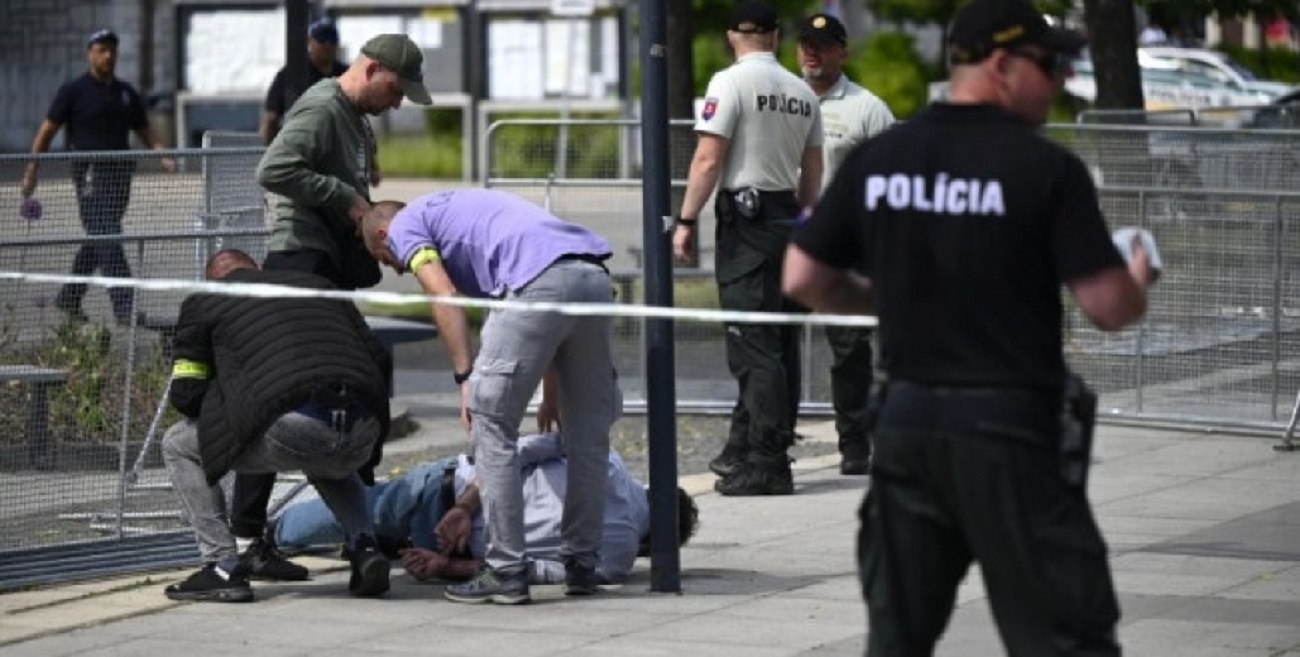On Wednesday, May 15, in Slovakia, during the afternoon, an attempt was made on the country's Prime Minister, Robert Fico. The incident occurred during a government meeting in the city of Gandlova. When Fico exited the meeting onto the street, several shots were fired. The Prime Minister was taken to the local hospital and later transferred by rescue helicopter to a hospital in Banska Bystrica. Currently, his condition is critical. The implications of this incident and who might be seeking to exploit it for their own gain are being investigated by Apostrophe.
Rare occurrence
Attacks on political leaders in the European Union are reminiscent of long-forgotten days. Perhaps the most recent event of such magnitude was the assassination of Swedish Prime Minister Olof Palme in 1986. Throughout the 1970s and the first half of the 1980s, Europe was regularly shocked by attacks from ultra-left and ultra-right terrorists – from the Red Army Faction (RAF) in Germany to the National Vanguard and Red Brigades in Italy.
With the end of the Cold War, terrorists of this type faded into the background. Meanwhile, Islamists stepped onto the stage. Al-Qaeda, and later ISIS, were responsible for the deadliest attacks of the past 20 years.
Simultaneously, worldwide, the trend toward political polarization is becoming increasingly evident. This, in turn, spawns incidents like the assassination attempt on Fico.
Moreover, the situation has long been fueled externally within the framework of the Kremlin's strategic campaign against our Western neighbors.
‘The assassination attempt on Slovak Prime Minister Fico is a clear manifestation of the intensification of Russian intelligence services and the Kremlin's maximum ruthless use of hybrid instruments against Western European countries,’ Taras Zhovtenko, international security expert of the "Democratic Initiatives" Foundation, notes.
In his opinion, Russian propaganda aims to cultivate ultra-right and ultra-left xenophobia and distrust of citizens towards the government. Additionally, it seeks to radicalize sentiments within European societies and provoke clashes in target countries.
Slovak specificity and Russian propaganda
In the case of Fico, Russian propaganda found fertile ground due to a predisposition to believe in conspiracy theories, especially on the eve of the European Parliament elections.
According to surveys, nearly 40% of Slovaks consider it possible for European Unionitself may interfere in the European Parliament election in Slovakia (no matter how absurd it may seem).
Whether Russia was directly involved in the assassination attempt on Fico will be determined by the investigation. Meanwhile, the head of the Slovak Ministry of Interior, Matuš Šutaj Eshtok, has already stated that the shooter's decision "was politically motivated" and arose shortly after the presidential elections.
Juraj Cintula is a 71-year-old Slovak writer and one of the founders of the literary club DÚHA. In addition to his literary work, he was an activist for the liberal party of Slovakia.
At the same time, investigative journalist Szabolcs Panyi asserts that Cintula was associated with the pro-Russian militant group Slovenskí Branci (‘Slovak Conscripts’), which previously collaborated with the Slovak branch of the pro-Putin Russian biker club ‘Night Wolves.’
Against this backdrop, it is interesting to observe attempts by Russian propaganda to push the narrative of a supposed Ukrainian involvement in the assassination attempt. In particular, popular Ukrainian blogger Denis Kazansky suggested that the Russians porpagandists already have corresponding guidelines. He drew attention to the statements of the infamous Russian propagandist Margarita Simonyan, who immediately launched a corresponding emphasis: ‘The Prime Minister of Slovakia is injured. The one who said that the so-called ‘special military operation’ began because of the rampage of Ukrainian neo-Nazis, and Putin had no other way out. That's how they work.’
Other "cans of worms" have emerged in Europe as well. For instance, Russian propaganda circulated a speech by the pro-Russian French politician and candidate for the European Parliament, Florian Philippot, who claimed that the attack on Robert Fico could be linked to his stance against supplying weapons to Ukraine, which contradicts NATO's position.
Only words for now
Overall, it is quite evident that this story, on the eve of the European Parliament elections, will be utilized by the Kremlin not only to undermine Europeans' trust in Ukraine but also to sow division within the European Union. European leaders should grasp all these challenges. However, the reaction so far has been limited to general statements.
The President of Ukraine voiced his support for the Slovak Prime Minister, despite previous strained relations between Ukraine and Slovakia.
‘We strongly condemn this act of violence against the head of government of our neighboring partner state. Every effort must be made to ensure that violence does not become the norm in any country, form, or sphere. We sincerely hope for Robert Fico's speedy recovery and express our solidarity with the people of Slovakia,’ Zelensky twitted in X.
Other foreign leaders have similarly expressed their support for the Slovak Prime Minister.
“I strongly condemn the vile attack on Prime Minister Robert Fico. Such acts of violence have no place in our society and undermine democracy, our most precious common good. My thoughts are with PM Fico, his family,” said Ursula von der Leyen.
‘Violence must not be existent in European politics. At this hour, my thoughts are with Robert Fico, his family, and the people of Slovakia,’ added German Chancellor Olaf Scholz.
Most other comments have a similar tone. However, besides sympathetic statements, this time leaders of the EU need much more, as events in Slovakia demonstrate that the new challenges facing Europe require a swift and consolidated response.


